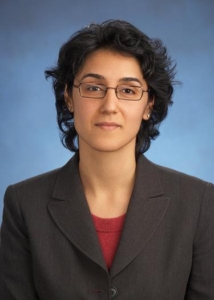Susan L. Harper, Director at the Bates Group LLC and President of the Financial Women’s Association of New York, Inc. (FWA) has always been a staunch supporter of women’s advancement. This year, she used her position within the FWA to draw a greater focus on the topics of women in the public and political realm and negotiation for women.
“The FWA has been a leader in the areas of mentoring programs and sponsorship initiatives,” Harper said. “But I truly believe for us to get ahead that we need to take ownership of our advancement, become self advocates and harness our own negotiation power.”
This has been one of Harper’s signature initiatives, with events designed around salary and severance negotiation, advocating for work position advancement, and skills development workshops for emerging leaders. She explained, “With respect to women and the pay gap, it’s very important that we understand that we do have the power to negotiate and ask for what we want and deserve. If you’re at that point where a company has made you an offer and they want you, they are more than likely open to negotiating with you.” She continued, “In terms of pay equity issues, the phrase I like to say is, ‘Debt does not discriminate.’ With all things being equal, no one’s going to say ‘Sorry you make 77 cents to every man’s dollar. No worries. We’ll discount your bill because of that. No business in its right mind would ever do something like that, barring extenuating circumstances. So let me ask you this, why should you allow your paycheck to be discounted?”
“Remember, what we negotiate today will impact us years down the road in our retirement years. You need to take the initiative,” she added “it will benefit you and your family.”









